
A Conversation with Mr. Pema Norbu (2019 MDP): The Kingdom of Bhutan
- Date 2021-03-05 05:58
- CategoryStory
- Hit2165
Mr. Pema Norbu Borqaa (2019 MDP) serves as the Senior Program Officer in the Special Education Unit of the Kingdom of Bhutan’s Ministry of Education. The special education unit looks at the welfare of children with disabilities. He oversees policymaking, budgeting, and the planning of programs and activities for schools with special needs. He is currently on study leave, pursuing a Master of Development Policy at KDI School of Public Policy & Management.
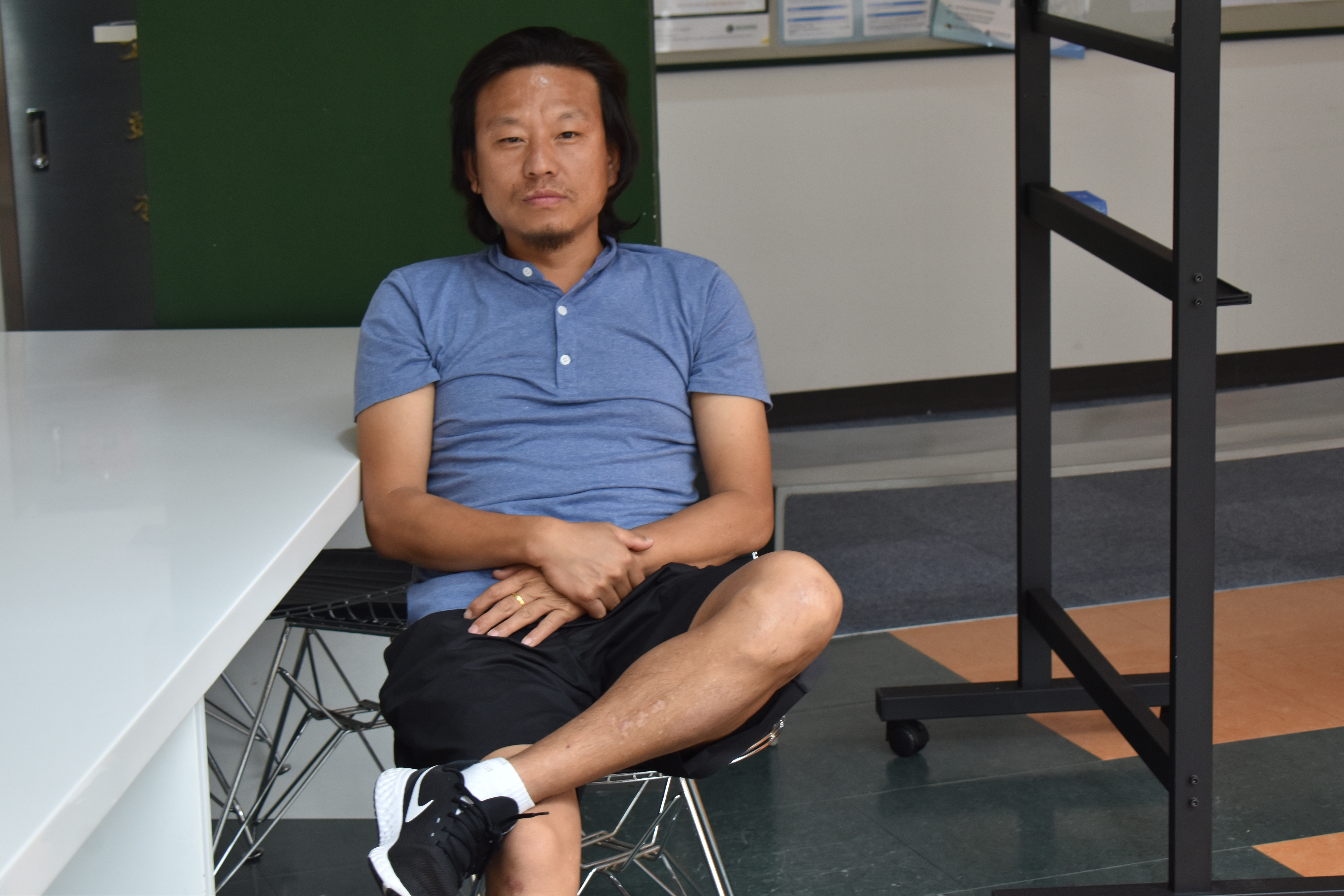
The Kingdom of Bhutan is a landlocked country in South Asia tucked away deep in the Himalayas mountains. It is bordered by China and India. 72% of its surface is under forest cover and it is considered the only carbon negative country in the world. Dzongkha is the nation’s national language. The country is by far one of the happiest places on earth. Its prosperity is measured under the Gross National Happiness index. It has a constitutional monarchy led by the King and a functioning government run by a Prime minister.
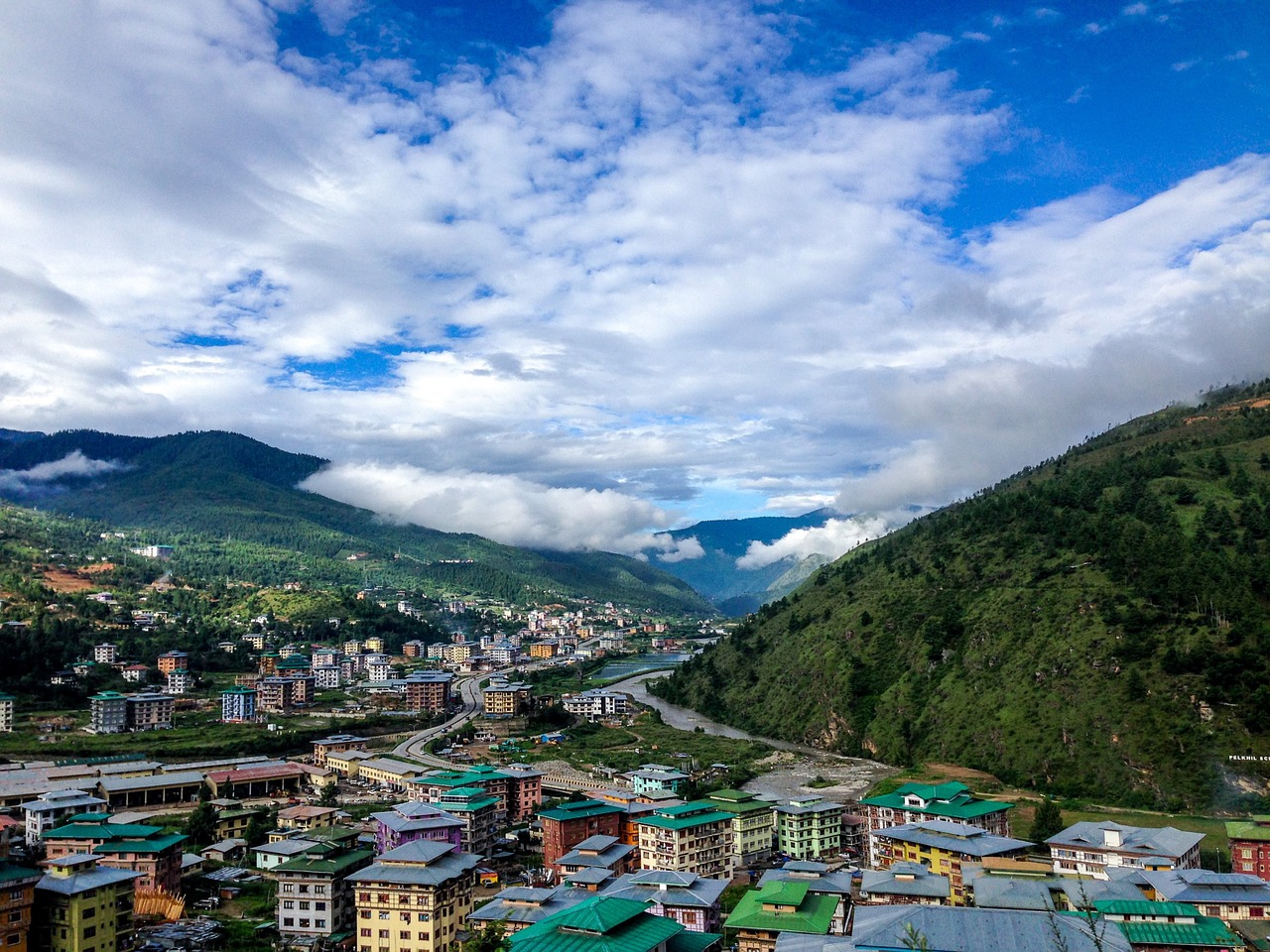 Bhutan, Source: https://pixabay.com/
Bhutan, Source: https://pixabay.com/
Mr. Pema and I had the following conversation.
Tell us about yourself.
I am a senior civil servant in the government of Bhutan. I did a BA Economics & Environmental Studies from the Royal University of Bhutan. I took up a few other qualifications before commencing my journey of work with the central monastic affairs. I worked there for a few months and then joined ‘His Majesty the King’s office’ to serve as the welfare officer. The job required us to implement the King’s welfare policy, through welfare programs and activities that benefited the most unreached and vulnerable in society.
After working for the King for 3 years I had the option to join any ministry that I desired; a privilege that came with serving at his office.
I joined the Ministry of Education where I am currently at. I overlook the Special Education Unit. It is my 6th year so far. I love doing this job because it speaks to my heart. I love serving people and this job gives me the opportunity to do so.
The measure of Gross National Happiness Index (GNH) originates from Bhutan. Tell us a little more about GNH, how it has, and continues to apply in Bhutan.
GNH is a development philosophy that guides the society of Bhutan. It is the brainchild of the 4th King of Bhutan, His Majesty Jigme Sinye Wangchuck. It is a “multi-dimensional development approach that seeks to achieve a harmonious balance between material well-being, the spiritual, emotional and cultural needs of our society.” Our GNH is distinct from the western literature on ‘happiness ‘. We frown upon the ‘fleeting’, pleasurable ‘feel good’ moods often associated with that term. For us, true abiding happiness comes with serving others, being content, living in harmony with nature and taking care of our thoughts and minds.
That said, Gross National Happiness Index in Bhutan has four main pillars. First is the Sustainable and Equitable Socio Eco. Development pillar, with three domains; living standards, education, and health. Second, is the preservation and promotion of culture pillar with 4 domains, namely; cultural diversity, community vitality, the use of time, and psychological well-being. Third, is the conservation of the environment pillar with one domain; ecological diversity. Lastly is the pillar of good governance. The pillars and their domains are measured under given indicators. The indicators are used as policy screening tools. Any emerging policy or project has to undergo the screening. The policies/programs suggested ought to fulfill all the requirements. If they fail to do so they will either be sent back for improvements or face rejection.
The ministry you work in plays a big role in inculcating the fabric of happiness into society. What kind of policies has the Ministry of Education formulated to achieve GNH?
First, education is totally free; from primary level to university. This is backed by the constitution. From a policy lens, the National Education policy has been reviewed to make it more inclusive and accessible to all, aligning with the development philosophy of GNH.
Like I pointed out earlier, all the policy proposals and projects have to undergo the GNH screening. We have diversified our curriculum into Technical and Vocational Education and Training (TVET) for the production of the missing skilled labor force, and embraced ICT to help catch up with the fast-growing information-based global society. We are also focusing more on science, technology, engineering, and mathematics (STEM) subjects to enhance innovation and creativity. Above all, these plans have followed our GNH development measurements.
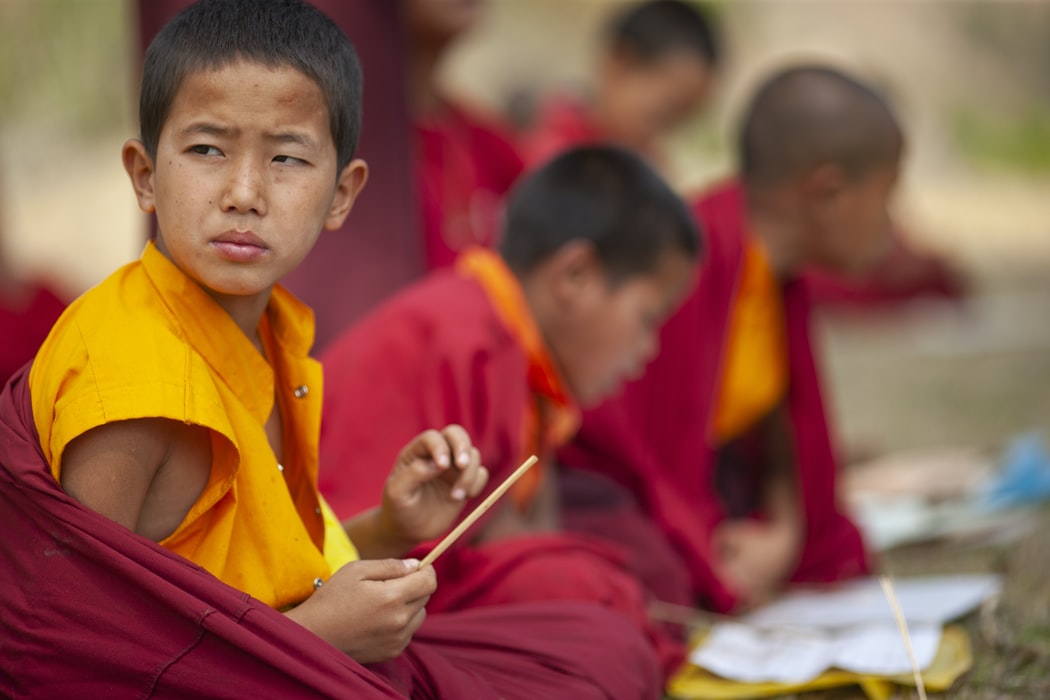 Source: @lightscape, https://unsplash.com/
Source: @lightscape, https://unsplash.com/
Having lived in a ‘happy society’ so to speak, how shocked are you when you travel overseas and fail to witness the same measure of happiness in some countries?
When people travel outside their countries, they are likely to encounter culture shock. I look at it as part of any traveling experience. I have been to Israel, India, Thailand, and Korea. They all have their fair share of culture shocks. But having said that, I came to observe that some societies are too busy for people to have time for themselves. Take Korea for instance. When I was here in 2018 for a two-week official training program, I hardly saw people relaxing and was left wondering if they indeed made time for family or social activities. But come to think of it, albeit pressuring, there is another side to this. Such an environment reinforces a culture of hard work, dedication, and commitment, which is way too good for me to comment.
This leads me to this question; there are countries, whose great economic progress correlates with, some level of “unhappiness.” To maintain high economic productivity, they have to sacrifice a sizeable chunk of their social progress. This impedes their social well-being and deteriorates the country’s mental health index in myriad ways. Based on Bhutan’s experience, what kind of policy approaches might they pursue to bring about some balance?
This question is tough…(chuckles)
In Bhutan, our 4th King had a belief that ‘if at the end of each of our country’s 5 year plan period our people were not happier than before, our development plans would have failed.’
Reflecting on this profound belief, jointly pursuing people’s happiness and a country’s economic development is paramount. The development philosophy of GNH has helped us to strike the balance.
I don’t think I can give a concrete policy proposal for other countries to replicate but I would advocate for a values-based approach that takes into consideration the welfare of people or end-users. Policymakers might want to consider the psychological, emotional, and spiritual wellbeing of the people when framing their policies.
Having looked at the bright side, let’s flip the script a bit. What kind of challenges is Bhutan facing?
I have not seen ‘serious’ challenges as such but then again there are a few. First, there is youth unemployment. The high rate of youth unemployment stems from the mismatch of skills that youth possess and the existing jobs, which is a case for most developing countries. We have put in a number of measures to address this, like incorporating TVET training to create the necessary skills the job market needs.
Another challenge is the low investment in research and development (R&D), be it in universities, colleges, or government institutions. If we look at developed countries, R&D forms a key component in the formulation of evidence-based policies and planning of national programs, which contributes to robust economic growth. Venturing into large scale R&D will contribute to effective policy making.
To anyone who would want to come and visit your country, what can they expect?
The experience begins when one is about to land. Moving through the mountains on your way down is quite an adventure. The view below you is breathtaking. There are beautiful snow-capped mountains, meandering rivers, vast paddy fields, and beautiful forest cover. And once you land, you will be hit by a gust of fresh clean air. Being a carbon-negative country, it implies that more CO2 is absorbed from the air than it is released. According to our constitution, 60% of our land must always remain under forest cover. Hence the fresh air. For now, 72% of it is forested.
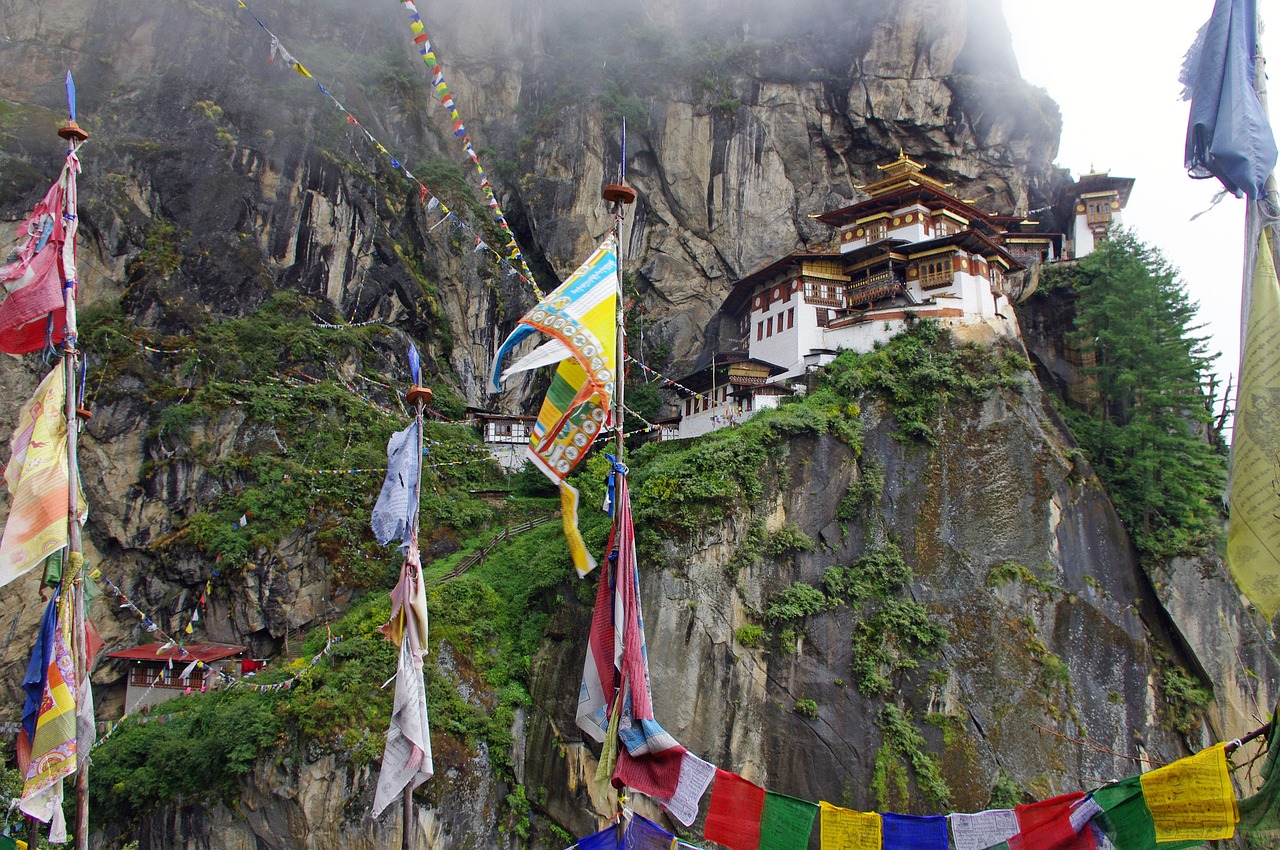 Bhutan, Source: https://pixabay.com
Bhutan, Source: https://pixabay.com
In addition to that, there are beautiful cultural centric buildings for one to see. There are no high-end skyscrapers at all. All buildings uphold the features of Bhutan’s culture.
We have a lot of festivals and rituals too. At the moment the whole country is not eating meat. It is a no-meat month. Being a holy month, we have to skip meat lest we sin. And if you commit any sin throughout this month, your wrong will be multiplied a million times. If you don’t commit any sin, your good deeds will be multiplied a million times. The ritual helps to bind the country together. We celebrate ‘rainy day’, the first snow of the year, and a few other festivals. Some festivals go up to 5 days. Around this time there is always a high influx of tourists. Therefore there is a lot to expect.
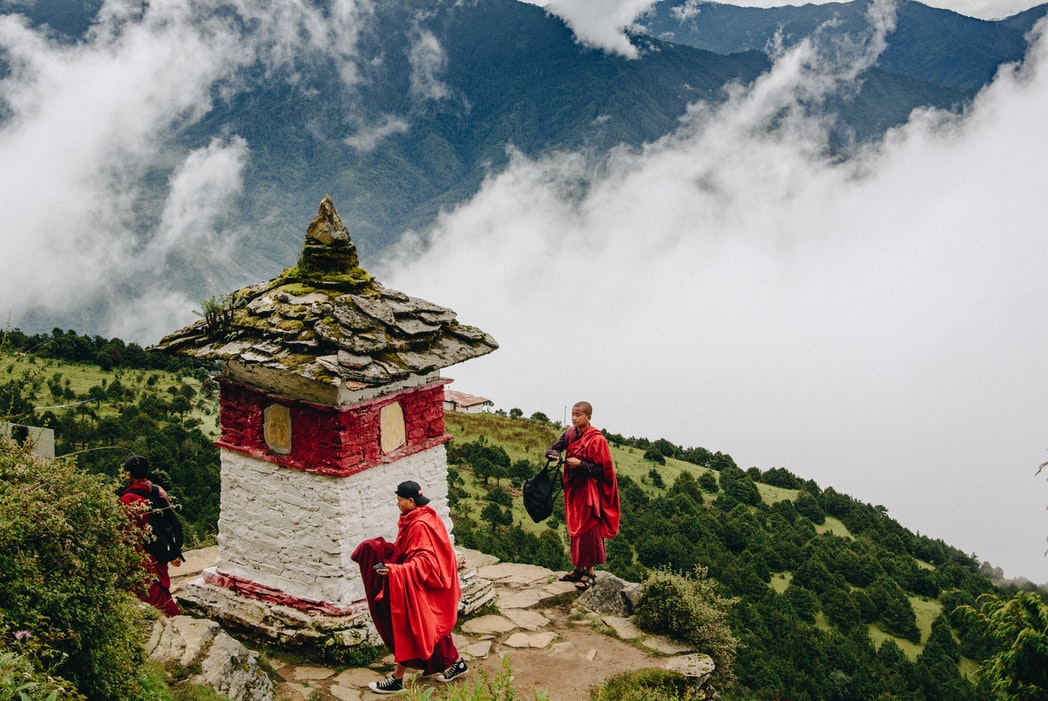 Source: @adliwahid, https://unsplash.com/
Source: @adliwahid, https://unsplash.com/

Related News
-
Story414 days ago
Interview with Berik Tankimov (2018 MPP), MSME specialist in Asian Development Bank (ADB)#KDISCHOOL #KDIS #interview #alumni #story #Asian Development Bank
-
Story899 days ago
What’s on Your Mind? Interviews with New KDIS Students -
Story975 days ago
A Conversation with Ms. Mango Jane Angar (2018 MDP): Kenya
